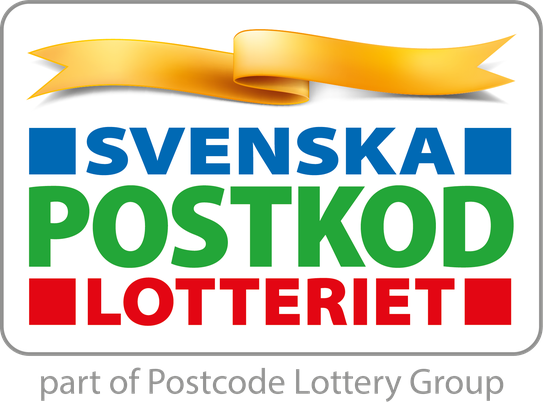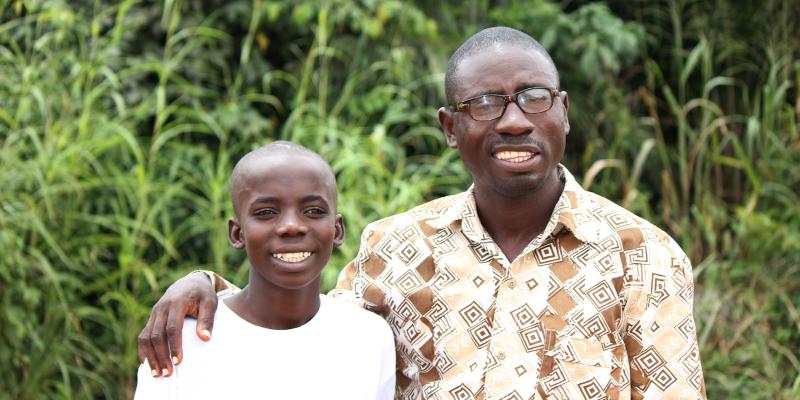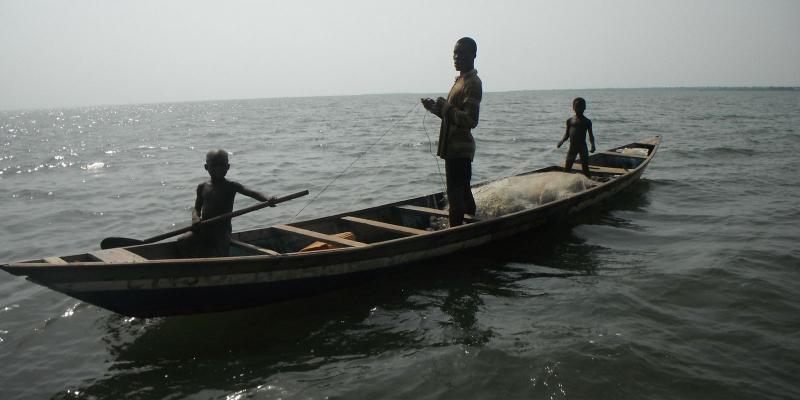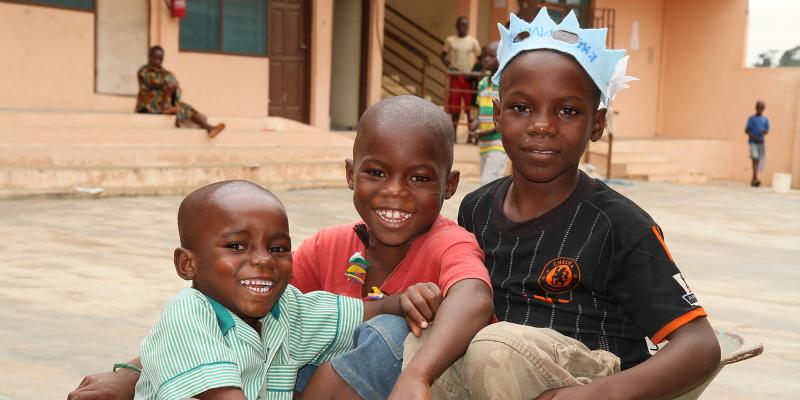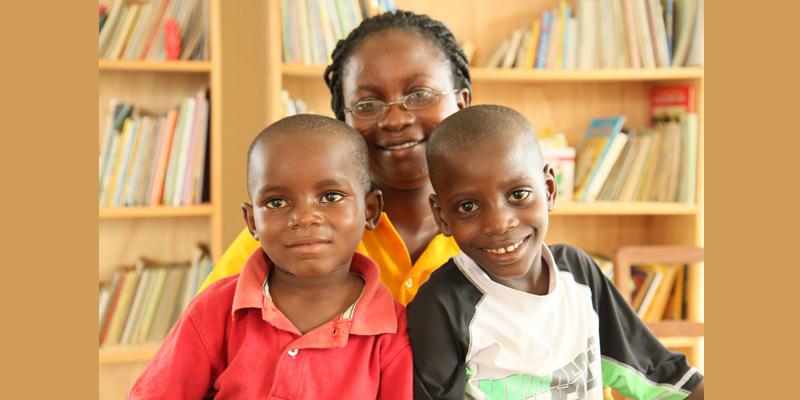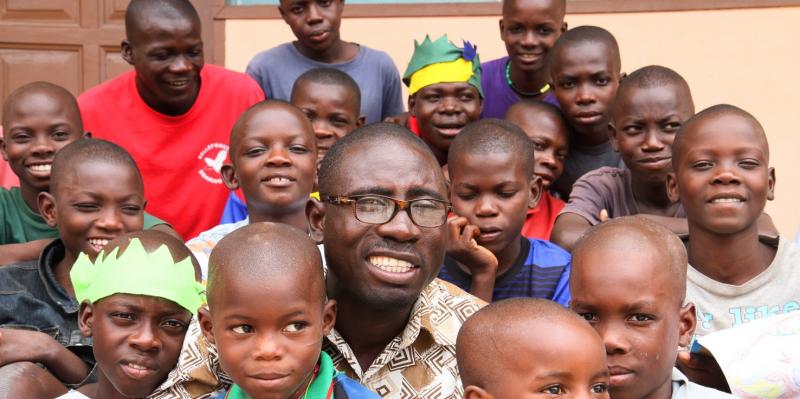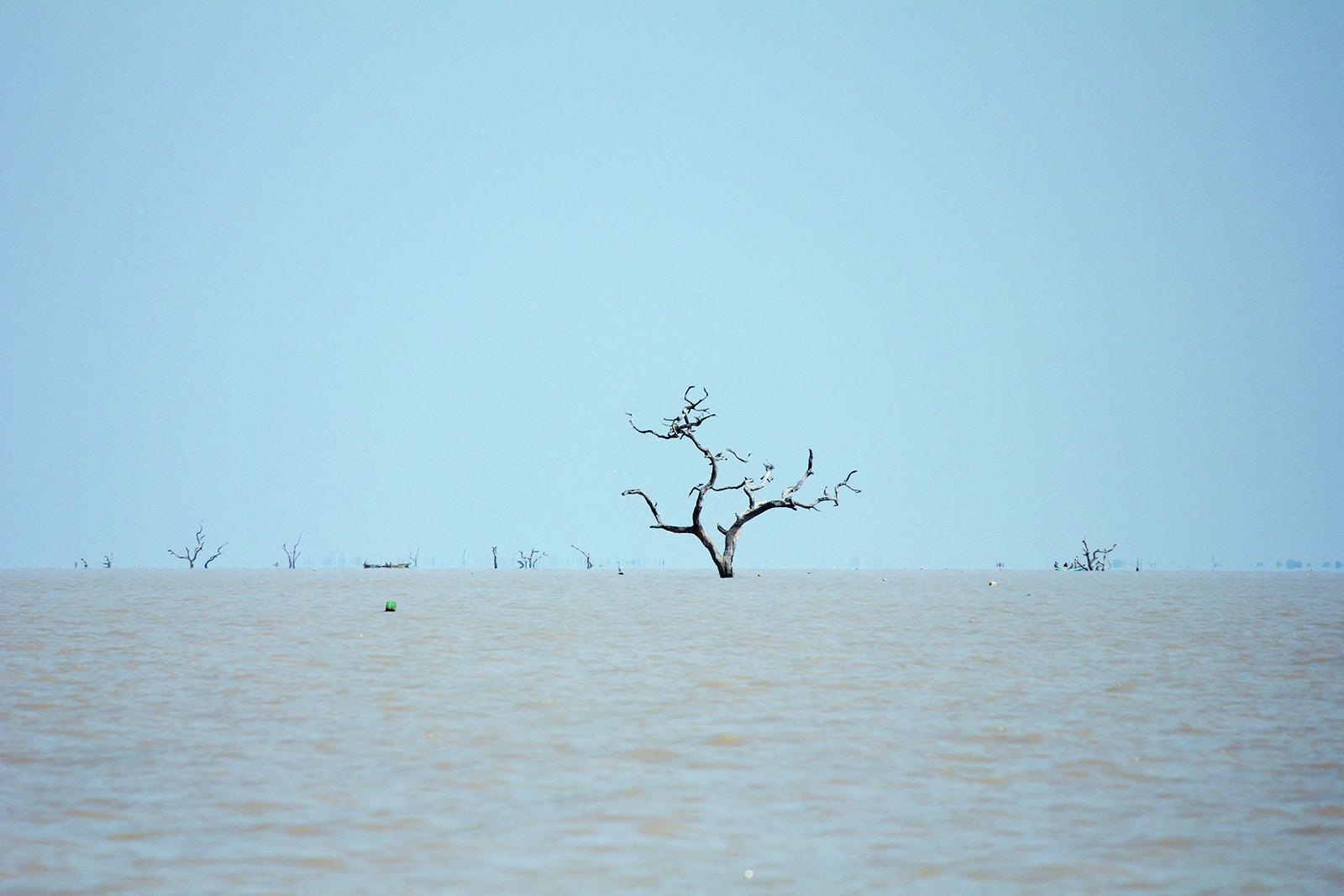
There is no word for trafficking or child slavery in Ghana. The fishing slaves get called ‘the boys who went to Yeji’. That’s the village where most child slaves in the fishing industry are taken. From there they are sent out to different slave owners around the lake.
Child slavery is very common in Ghana. Children are sold by their parents or relatives. Often by single mothers with many children, who can’t afford food for everyone. It’s also common for poor people to borrow money from slave traders for a funeral when someone dies. When they find themselves unable to pay it back, the slave trader takes their children instead.
Children "cost" US$15-35 and are supposed to work for at least two years. Often they have to work for much longer.
Lake Volta in Ghana is the world’s largest man-made lake. It was created when a dam was built to create electricity, more than forty years ago. The dam caused forests to flood, so now the bed of the lake is full of huge dead forests.
Some trees stick up above the surface, but many are not visible. It’s common for boats to sail into them and be pulled under. But the trees also mean that the fishing is very good in Lake Volta. The fish enjoy playing among the branches, which also protect their young. And the trees provide lots of nutrients.
All the branches in the water mean that fishing nets often get caught, and children have to dive down to disentangle them. Many child slaves die every year. Usually because they get tangled up in the nets and can’t get out.
”One in five children dies out there,” says James Kofi Annan, who came close to drowning himself.
Now there is a company that has started felling the trees, for valuable timber. Many fishermen are worried that the trees that could save them in a storm are disappearing.
It is thought that there are almost 250,000 child slaves in Ghana, and 1.3 million child labourers. Children from Ghana are also sent as slaves to neighbouring countries. Child slavery was outlawed in Ghana seven years ago, but still goes on nonetheless. Since it is now against the law, Challenging Heights can get help from the police to set children free.
Text: Eva-Pia Worland
Photo: Bo Öhlén
Related stories
Långgatan 13, 647 30, Mariefred, Sweden
Phone: +46-159-129 00 info@worldschildrensprize.org
© 2020 World’s Children’s Prize Foundation. All rights reserved. WORLD'S CHILDREN'S PRIZE®, the Foundation's logo, WORLD'S CHILDREN'S PRIZE FOR THE RIGHTS OF THE CHILD®, WORLD'S CHILDREN'S PARLIAMENT®, WORLD'S CHILDREN'S OMBUDSMAN®, WORLD'S CHILDREN'S PRESS CONFERENCE® and YOU ME EQUAL RIGHTS are service marks of the Foundation.
